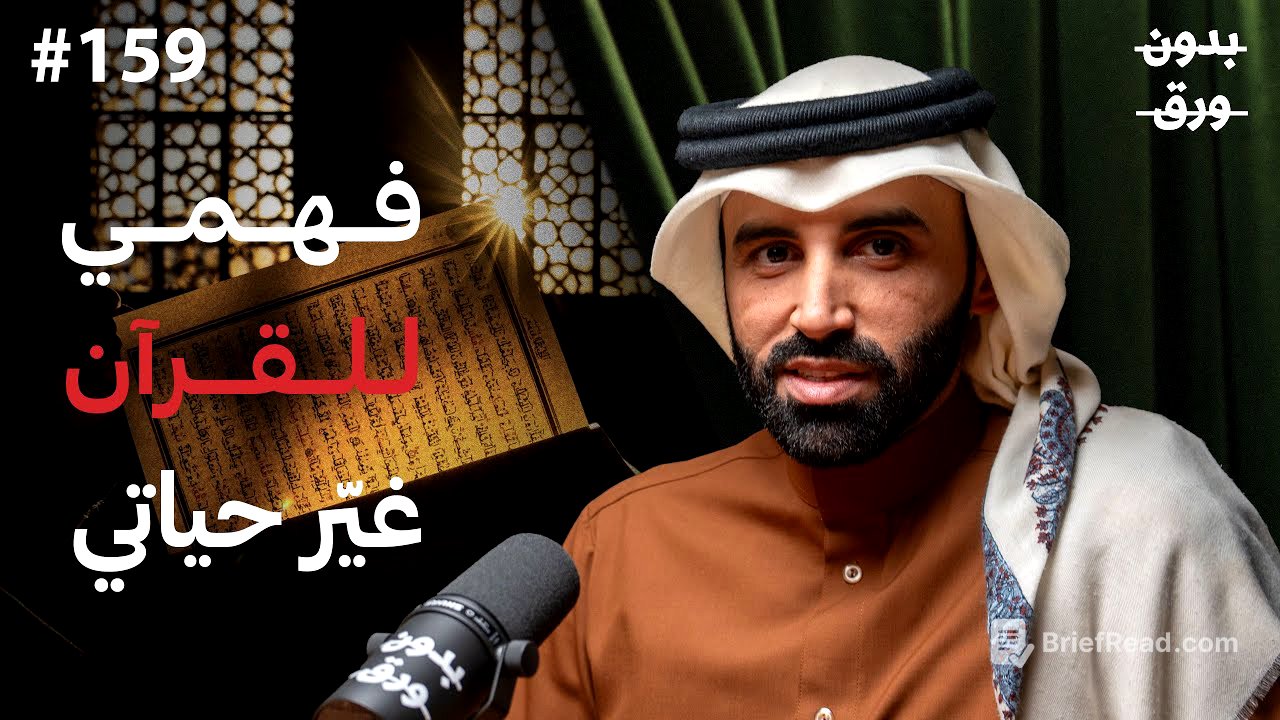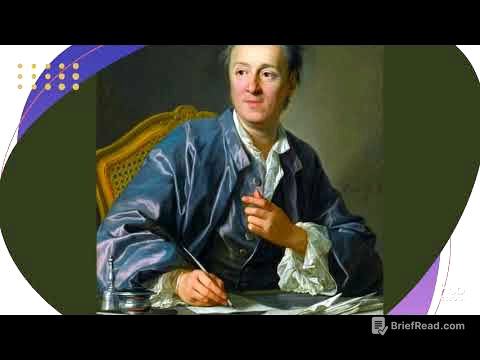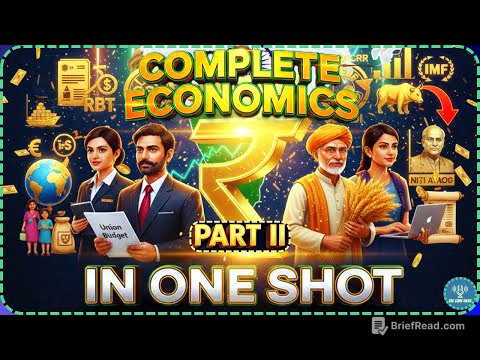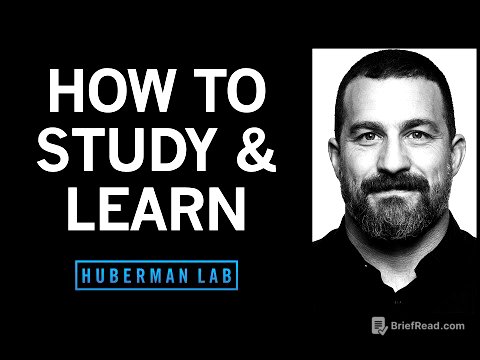TLDR;
This YouTube video explores the central role of the Quran in education and personal development. It argues that the Quran is not just a book of blessings but a comprehensive guide for knowledge, ethics, and societal management. The discussion covers the importance of تدبر (contemplation) of the Quran, its relevance to various fields of knowledge, and how it can be used to cultivate moral and intellectual resilience. The video also addresses common misconceptions about the Quran, such as the fear of misinterpretation and the notion that it is solely for religious scholars.
Key points:
- The Quran is a book of guidance and knowledge, not just for blessings.
- تدبر (contemplation) of the Quran is essential for understanding and applying its teachings.
- The Quran provides a moral compass and framework for various fields of knowledge.
- Education should focus on cultivating moral and intellectual resilience based on Quranic principles.
- Overcoming misconceptions about the Quran is crucial for its effective use in personal and societal development.
القرآن كتاب للمعرفة أم كتاب أخلاقي؟ [1:32]
The discussion begins by questioning whether the Quran is primarily a book of knowledge or ethics. It is argued that the Quran explicitly states its purpose is not just for حفظ (memorisation) but for تدبر (contemplation). The speaker highlights that the Quran is a guide for humanity, providing knowledge necessary for establishing قسط (justice) in society. It covers various aspects of life, including politics, economics, education, and psychology, offering foundational principles for each. The speaker emphasises the importance of not attributing personal interpretations to the Quran without grounding them in the text itself.
مركزية القرآن [18:14]
This section focuses on the central role of the Quran in shaping Islamic thought and knowledge. It criticises the current academic environment for often treating Islam as a phenomenon rather than a source of guidance. The speaker argues that Muslims should turn to the Quran to extract knowledge and apply it in various fields. He points out that many Muslims view the Quran as a book of blessings rather than a source of guidance and knowledge, leading to its marginalisation in academic and scientific institutions. The speaker advocates for reinstating the Quran as a central source for knowledge production in the Muslim world.
هل القرآن حمال أوجه؟ [25:52]
The discussion addresses the idea that the Quran is "حمال أوجه" (bearing multiple interpretations). The speaker clarifies that while some verses may have multiple interpretations, many are قطعية (definitive) and do not allow for varied understandings. He warns against using this concept as a pretext for abandoning الاستدلال (reasoning) with the Quran. The speaker notes that even the الصحابة (companions of the Prophet) sometimes misinterpreted the Quran, but this did not deter them from engaging with it.
التطرف والتلاعب [28:08]
This section addresses concerns about تطرف (extremism) and التلاعب (manipulation) in interpreting the Quran. The speaker argues that the solution is not to abandon تدبر (contemplation) but to address these issues directly. He points out that المتلاعبون (manipulators) will exploit the Quran regardless, and preventing genuine engagement only empowers them further. The speaker advocates for encouraging Muslims to read and contemplate the Quran to develop a قرآني (Quranic) awareness that acts as a barrier against manipulation.
آلية تدبر القرآن [32:18]
The speaker discusses the mechanism for تدبر (contemplation) of the Quran, emphasising that it requires effort and perseverance. He shares his personal experience of being captivated by the Quran to the extent that he no longer finds the same satisfaction in other books. The speaker stresses the importance of صبر (patience) when engaging with the Quran, comparing it to the dedication people show when studying other complex subjects. He encourages readers to ask "لماذا؟" (why?) when reading the Quran, to explore the meanings of words, and to seek guidance from scholars when needed.
القرآن والتربية [48:25]
This section explores the Quran's approach to التربية (education), noting that it begins by explaining the ماهية (essence) of human nature. The Quran provides a تشخيص (diagnosis) of the النفس الإنسانية (human soul), identifying various سلبي (negative) traits. The speaker argues that the modern educational system fails to adequately understand and address these traits. He suggests that the goal of education should be to help individuals transition from the "إنسان" (human) model to the "إيمان" (faith) model, characterised by positive traits.
الشرك وأنماط الخطأ الانساني [1:07:00]
The discussion defines الشرك (polytheism) as attributing absolute obedience to something other than Allah. It identifies three patterns of human error: غفلة (negligence), ضعف (weakness), and تمرد (rebellion). The speaker explains that غفلة (negligence) can be corrected with تذكير (remembrance), ضعف (weakness) with توبة (repentance), and تمرد (rebellion) is the most dangerous, leading to فسق (immorality) and الشرك (polytheism). He stresses the importance of recognising these patterns in oneself and others to avoid falling into error.
النموذج التربوي القرآني في المدارس [1:15:59]
This section focuses on implementing the قرآني (Quranic) educational model in schools. The speaker suggests that the educational system should aim to purify students' souls from negative traits and cultivate positive ones, such as الشكر (gratitude). He explains that الشكر (gratitude) involves using blessings in accordance with Allah's will. The speaker contrasts this with the current system, which often promotes كفران (ingratitude) by encouraging the misuse of blessings.
اشكاليات منظومة التعليم الحالية [1:32:35]
The discussion critiques the current educational system, arguing that it focuses too much on الذكاء (intelligence) rather than الرشد (wisdom). The speaker explains that الذكاء (intelligence) is merely a tool, while الرشد (wisdom) is the ability to use that tool effectively. He argues that the educational system should prioritise الرشد (wisdom) to cultivate well-rounded individuals who can contribute positively to society. The speaker also criticises the separation of التربية (education) and التعليم (teaching), arguing that education should be integrated with moral and ethical development.
البوصلة القرآنية [2:10:39]
This final section emphasises the importance of the "البوصلة القرآنية" (Quranic compass) in navigating life. The speaker argues that the educational system fails to provide students with a clear sense of direction, leaving them ill-equipped to deal with life's challenges. He shares personal anecdotes of how the Quran has guided him in various situations, such as deciding when to engage in حوار (dialogue) and when to أعرض (turn away). The speaker stresses the importance of understanding the Quran's guidance on المواجهة (confrontation) and الإعراض (avoidance), as well as the value of الثبات النفسي (psychological resilience) in the face of adversity.









